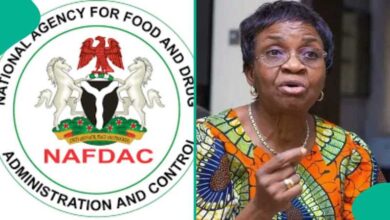Why N10bn Vaccines Manufacturing Grant Is Not Released – Tomori

Some HEWAN members and facilitators in a group photograph during the conference
The Professor of Virology and former President of the Nigeria Academy of Science, Prof Oyewale Tomori has given insights into why the N10 billion vaccines manufacturing grant has not been released.
He also spoken extensively on why the dreams of Nigeria becoming a vaccine manufacturing country may not be realistic even as he regretted that despite the huge benefits of vaccines, the government has not released the much-publicised N10 billion grant.
Speaking as a Guest Speaker at the 11th annual conference of the Health Writers Association of Nigeria (HEWAN) in Lagos recently with the theme “Building Confidence in COVID-19 Vaccines and sub-theme: “Addressing COVID-19 Vaccine Hesitancy in Nigeria: Role of the Media,” said the reason why that money was not released was as a result of disagreement with the principle of using that money.
“If you say you are giving N10 billion let it be N10 billion. Don’t take anything out of it and that is the reason why the money has not been released up till now.
“At this stage of my life, I will not get involved in anything that will make EFCC run after me.” Tomori said
Tomori is the Chairman of, Biovaccine Board, the company commissioned by the federal government for local production of vaccines in Nigeria.
He said the current reality did not in any way suggest that Nigeria will be able to achieve local vaccine production in the nearest future.
He said until the federal government handles the issue of local vaccine production with the seriousness and commitment it deserves, Nigeria would only be chasing shadows.
He appealed to the federal government and legislators to demonstrate that they have a genuine care for the health and welfare of the citizens.
“With local vaccine production, we will have better control of supplies for immunisation, national security, reduce dependency, ensure sustainability and avoid donor fatigue,” he added.
Tomori, who is a former World Health Organisation Representative to Nigeria and a Board member of the Global Alliance for Vaccine and Immunisation (GAVI), said that another embarrassing thing that shows that the country was not yet ready for vaccine production was the delay in getting approval that Nigeria will patronise locally produced vaccine.
“Since May & Baker understand Nigeria style, they seek for a letter of assurance that Nigeria will patronise locally produce the vaccine. It will shock you that it took us a whole year before we get that letter,” he stated.
While calling on the Federal government and Nigerian legislators for urgent intervent to salvage the country’s ripping fortunes, he said although Nigeria is the 7th most populous country in the world, it happens to be the only country among the world’s 10 most populous countries without local vaccine production capacity.
“We need to learn from developed countries in other to move forward. The success of the United States COVID-19 vaccine effort was made possible by decades of long-term investments by the government.
“It will be recalled that in July 2020, the U.S government awards Novavax $1.6 billion for the COVID-19 vaccine.
“Why did they do this? They understand that upfront procurement contracts are critical to creating successful vaccines and ensuring they were available to the US public.
Tomori said that the situation was the opposite in Nigeria as the government are reluctant to do the needful, “The Nigeria government entered a joint venture agreement with one of the oldest pharmaceutical companies in Nigeria, May & Baker in 2005 to achieve local vaccine production but up till today no fund has been released except the old Yaba vaccine lab that government pledge as equity.
“I must make it clear that in this joint venture, the federal government have 49 per cent share and May & Baker has 51 per cent.
“The idea was to raise $51 million capital investment of local vaccine production which is expected to be paid over the period of 10 years from the year of commercialization.
“With the Federal government grant of N10 billion, approximately $26.3 million, the process of local vaccine production will be fast-tracked reducing time for local production of much-needed EPI vaccines for our children to three to five years and enable us to participate in the end-stage production of COVID-19 vaccines locally.
He said that the benefit of investment in vaccine production is enormous in the sense that it will help us create jobs faster, save on foreign exchange, become a hub for regional vaccine production, reap the benefits of the African Continental Free Trade Area and we will stop depending on foreign countries for our health security.
“Global vaccines market size was $41.61 billion in 2018 with projection to hit $93.08 billion by 2026.
“The irony about this figure is that while demand for vaccines will be reducing in high-income countries, demand by low and middle-income countries will keep increasing.
“The reason for the increase in demand is overpopulation; some countries are busy making effort to produce vaccines that they will sell to Nigeria while we are busy making babies and prioritize self-interest over national interest,” he added.




